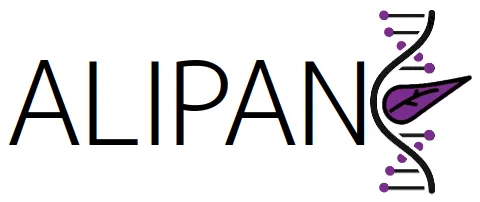
by Comite Web | Feb 19, 2024
The Personalized Oncology Research Group (IBS-A13) is a multidisciplinary research team of ibs.Granada, led by Dr. Martinez Galan, composed of basic, translational and clinical researchers belonging to the Medical Oncology Service of the University Hospital Virgen de las Nieves and the University of Granada. With a track record of more than 10 years, we specialize in the identification of prognostic and predictive biomarkers of response to treatment in pancreatic cancer patients. In addition to numerous publications in the field, our results have generated several patents that are licensed by a Spanish diagnostic company.
Recently, we have initiated a new line of research that focuses on the mediating role of platelets and the extracellular vesicles (EVs) they generate during the process of carcinogenesis. In recent years, several studies have indicated that platelets play a crucial role in the progression of pancreatic cancer.
Using human cell models generated by in vitro gene editing and in vivo animal models, we explore the molecular mechanisms that regulate the communication between platelets and tumor cells. This communication process is mainly mediated by EVs released by both cell types.
Finally, we have begun proteomic analyses aimed at revealing the protein content of tumor cells, platelets and their EVs in pancreatic cancer patients at various stages of the disease. We strongly believe that this methodology will provide us with the opportunity to better understand the communication signals that are exchanged, thus allowing us to identify new early diagnostic and prognostic biomarkers that can be translated into clinical practice.

by admin | Nov 3, 2023
We carry out projects related to the development of new diagnostic tools in cancer based on thermal liquid biopsy (TLB), the identification of bioactive compounds against various pathologies, and the use of polymeric nanostructures in therapy and diagnosis.
Main lines of research:
- TLB (Thermal Liquid Biopsy) applied to tumor pathology diagnosis: validation of a new rapid and non-invasive diagnostic method.
- Evaluation of polymeric nanostructures that can be used in drug delivery or specific detection of serum biomarkers.
- Identificación y caracterización de compuestos bioactivos frente a distintas dianas proteicas: NuPR1 (cáncer de páncreas), BFT3 (infección por Bacteroides fragilis), MeCP2 (Síndrome de Rett).
- Application of machine learning models to the analysis of clinical and biological data.

by admin | Nov 2, 2023
The ‘Microbiome, Food and Health (BEA)’ group is formed by researchers specialized in food science, nutrition and its relationship with health and disease, who collaborate closely with clinical researchers with the aim of understanding how diet and lifestyle together with other environmental factors affect the oral and intestinal microbiota, from the point of view of its metabolic functionality, digestive health or microbiome-related conditions in other organs and tissues.
Lines of work: (i) biomarkers – presence or absence of key species, structure of microbial consortia and especially derived metabolites – related to cancer diagnosis, progression and treatment; (ii) development of diet-derived products for therapeutic purposes and personalized therapies based on the intestinal microbiota; (iii) prevention and treatment of multidrug-resistant infections during cancer treatment.
Our research is based on clinical studies and we have extensive experience in ecologically meaningful and representative models of the human gut. The combination with preclinical models allows us to evaluate plausible mechanisms on biological, physiological and pathological processes. In the laboratory we use the latest technologies in metagenomic sequencing, bioinformatics and machine learning, metabolomics and other omics techniques, which we apply in both in vitro and in vivo platforms.

by admin | Nov 2, 2023
Our team studies the biology of normal pancreatic tissue as essential knowledge for understanding the cellular and medical “drama” associated with the development of pancreatic cancer. Specifically, we study ductal cells and the role they play in pancreatic regeneration and exocrine pathogenesis, including pancreatic cancer. The main project we have related to PDAC is focused on the cell of origin. We have generated new lineage-tracing mouse lines from previously unknown ductal populations to study the early stages and development of ductal-derived pancreatic tumors and define early biomarkers and novel therapies by using in vivo and organoid models of mouse and human PDAC samples.

by admin | Nov 2, 2023
The group Malalties Digestives i Microbiota of IDIBGI focuses on studying the etiology of digestive diseases and the role of risk factors related to lifestyle and the role of microorganisms living in the intestine. It comprises a multidisciplinary team with basic and clinical researchers. The methodology employed includes observational studies at the phenotypic and molecular level, and instrumental studies to test causality.





